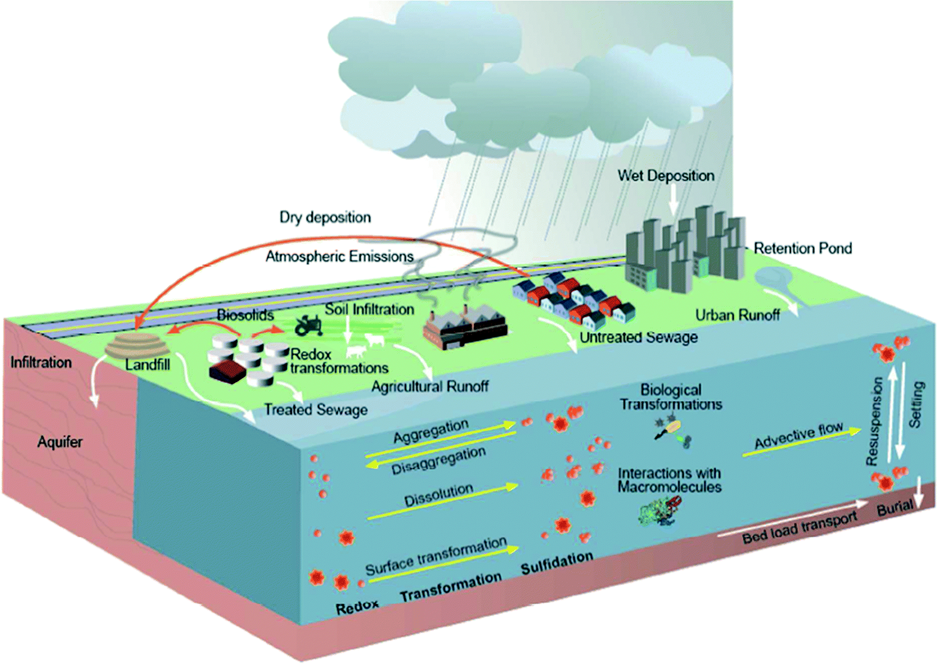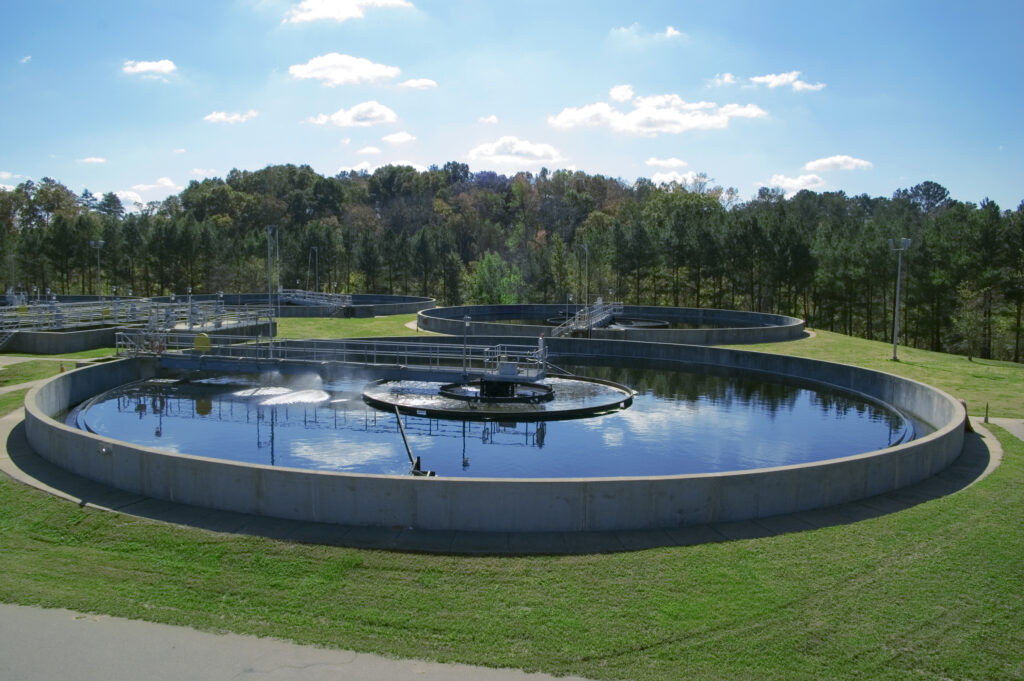Water Technology Startups for Private Equity Firms: Finding High-Impact Deals
Exploring Water Technology Startups: Exactly How They Reinvent Lasting Solutions
Water Technology start-ups are becoming vital players in the quest for lasting options to worldwide water issues. These firms utilize ingenious technologies to improve water performance and monitoring. Their contributions address pushing difficulties such as scarcity and contamination. Despite their possibility, they deal with numerous barriers that might impact their success. Understanding these characteristics drops light on the future of water sustainability and the duty these start-ups might play in forming it.
The Relevance of Water Technology in Today's Globe
As international water shortage intensifies, the significance of water Technology comes to be significantly evident. Water Technology plays a vital function in dealing with the challenges positioned by diminishing fresh water sources and increasing need. It includes a broad variety of technologies, including advanced purification systems, wastewater therapy technologies, and wise watering options. These innovations not just boost the performance of water use yet likewise promote sustainable techniques across numerous fields, including farming, market, and urban advancement.
The value of water Technology expands past source monitoring. It cultivates resilience against climate modification effects, such as floodings and droughts, by offering adaptive services for water conservation and administration. Furthermore, it supports public health and wellness by guaranteeing access to clean and safe drinking water. As the world deals with expanding water-related obstacles, the assimilation of sophisticated water modern technologies is important for fostering sustainable growth and safeguarding water schedule for future generations.
Cutting-edge Solutions From Water Technology Startups
While standard techniques to water administration have served their function, a brand-new wave of water tech startups is transforming the industry with cutting-edge options (Water Technology Startups). These companies leverage innovative technologies to deal with pressing water problems, such as deficiency, contamination, and inefficient distribution. Several start-ups utilize expert system and maker discovering to optimize water use and anticipate demand, causing more lasting techniques
Additionally, numerous companies concentrate on establishing advanced filtration systems that get rid of pollutants and make water safe for intake. Others explore decentralized water treatment modern technologies, enabling communities to handle their water sources better. Moreover, some start-ups are introducing smart watering options that reduce water waste in farming, advertising environmental preservation.
Instance Studies: Effective Water Technology Startups
Countless water Technology startups have actually become leaders in resolving global water obstacles via innovative techniques. One remarkable instance is Xylem, which concentrates on water analytics and smart facilities to enhance water usage and lower waste. Their remedies have been executed in different districts, demonstrating substantial renovations in water management efficiency.
An additional effective start-up, No Mass Water, has actually created solar-powered hydropanels that remove water vapor from the air, giving lasting alcohol consumption water in deserts. Water Technology Startups. This Technology has actually been deployed in several countries, guaranteeing communities have access to tidy water
Last But Not Least, AquaVenture Holdings runs a diverse portfolio of water-as-a-service services, dealing with water scarcity via desalination and wastewater therapy. Their projects have actually confirmed essential in areas encountering extreme water lacks, showcasing the potential of innovative water modern technologies to develop enduring, positive influences. These study highlight the transformative capacity of start-ups in the water Technology market.
The Function of Smart Technology in Water Administration
Smart Technology plays a vital role in modern water administration by leveraging IoT applications to maximize resource usage. Data analytics improves efficiency by providing actionable understandings, while remote surveillance options make it possible for real-time oversight of water supply. Together, these innovations change just how water is managed, promoting sustainability and operational effectiveness.
IoT Applications in Water
As water scarcity and monitoring difficulties heighten worldwide, the integration of Net of Things (IoT) applications has become a crucial service in optimizing water resources. IoT Technology facilitates real-time surveillance and analysis of water supply, allowing more effective use and management. Sensors released in numerous water facilities can track top quality, flow rates, and leak, providing useful data to stakeholders. This data encourages utilities and customers to make enlightened decisions, decreasing waste and boosting preservation efforts. Furthermore, wise watering systems utilize IoT to optimize water shipment for farming, ensuring that crops receive the correct amount of water at the correct time. Generally, IoT applications are changing traditional water management practices, promoting sustainability and durability in water source systems.
Information Analytics for Effectiveness
Taking advantage of information analytics is important for improving effectiveness in water monitoring. Water Technology start-ups are significantly making use of innovative analytics to maximize source allowance and minimize waste. By examining information from different resources, these startups can identify patterns and trends that inform better decision-making. Anticipating analytics can anticipate water need, permitting energies to change supply appropriately, therefore minimizing lacks and excess. In addition, real-time information handling makes it possible for the prompt detection of leakages and inefficiencies within circulation systems, considerably decreasing operational prices. Additionally, data-driven insights encourage stakeholders to carry out targeted conservation strategies, cultivating sustainable practices. Essentially, integrating information analytics right into water management not only simplifies procedures but additionally advertises long-term sustainability in water source use.
Remote Tracking Solutions
While standard water management systems often battle with inefficiencies, remote surveillance services are changing how water resources are handled. These innovative modern technologies enable real-time information collection and analysis, permitting stakeholders to keep an eye on water quality, circulation rates, and use patterns from afar. Using sensors and IoT tools, remote tracking gives instant understandings that help with positive decision-making. This change not only boosts operational effectiveness but likewise advertises sustainability by minimizing water waste and optimizing source allotment. In addition, remote tracking systems can recognize prospective problems prior to they intensify, thereby decreasing the danger of contamination or infrastructure failing. As water Technology startups remain to establish these remedies, the industry is positioned for significant advancements in sustainable water administration techniques.
Challenges Dealing With Water Technology Startups
Water Technology startups encounter considerable obstacles that can hinder their development and success. Key concerns include protecting sufficient funding, maneuvering through complicated regulative atmospheres, and contending in a congested market. These obstacles require calculated planning and advancement to get rid of.
Financing and Investment Hurdles
Innovation in water Technology holds tremendous possibility for dealing with worldwide obstacles, start-ups in this industry frequently deal with substantial funding and investment difficulties. Numerous investors remain careful, viewing the water industry as high-risk due to its complex regulatory landscape and long development timelines. Additionally, startups frequently have a hard time to show prompt productivity, which can discourage prospective backers. Conventional financial backing may neglect water innovation, favoring markets with quicker returns, such as tech or durable goods. Protecting gives and government financing can be lengthy and competitive, additional making complex financial stability. Therefore, many innovative water Technology start-ups discover themselves in a ragged edge, requiring innovative funding approaches to browse these monetary obstacles and achieve their objectives
Regulatory Conformity Issues
Steering governing compliance is a significant challenge for startups in the water Technology industry, as they need to come to grips with a myriad of local, nationwide, and worldwide guidelines. These regulations usually include water high quality criteria, environmental management laws, and safety methods, which can vary widely across jurisdictions. Startups might find it difficult to navigate this complex landscape, especially when scaling operations or entering new markets. The costs linked with compliance can be significant, diverting sources far from technology and item growth. Furthermore, delays in acquiring required permits or certifications can hinder growth and market access. Subsequently, a durable understanding of regulative frameworks is necessary for these start-ups to ensure sustainable operations and prevent prospective legal consequences.
Market Competitors Characteristics
As water Technology start-ups emerge in a competitive landscape, they encounter many difficulties that can impede their development and technology. Established companies usually control the market, leveraging sources and experience to preserve their positions. Start-ups fight with limited financing, which restricts study and advancement capabilities, making it hard to contend on Technology and pricing. In addition, the quickly progressing nature of water innovations demands consistent adaptation, more straining start-up resources. Regulatory difficulties can make complex market entrance, as compliance with ecological criteria is critical yet pricey. Ultimately, bring in skilled ability in a particular niche area provides one more obstacle, as bigger companies may supply even more appealing work packages. Subsequently, these factors create a complicated environment for water Technology startups intending to be successful.

The Future of Water Technology and Sustainability

The future of water Technology will likely focus on incorporating expert system and information analytics to enhance water circulation and usage patterns. By utilizing real-time information, companies can forecast shortages and handle resources better. Sustainable techniques will come to be a cornerstone of the industry, motivating round economic climates where water is reused and treated. Ultimately, the continued advancement of water Technology will be vital in producing resilient frameworks efficient in fulfilling the obstacles posed by climate change and population growth while promoting environmental stewardship.
Often Asked Questions
What Are the Trick Metrics for Reviewing Water Technology Startups?
Trick metrics for assessing water Technology start-ups include market potential, scalability, customer purchase expenses, income growth, modern technology innovation, governing compliance, ecological effect, competitive benefit, and group knowledge, all important for figuring out long-lasting stability and success.
Just How Can Individuals Assistance Water Technology Innovations?
People can sustain water Technology advancements by buying startups, advocating for policy modifications, taking part in community campaigns, sharing understanding about sustainable methods, and advertising understanding of water problems with local events and social media.
What Prevail Financing Sources for Water Tech Startups?
Common funding sources for water tech startups consist of venture capital, government grants, crowdfunding platforms, angel investors, and company collaborations. These economic opportunities help promote technology and growth in lasting water administration modern technologies.

Which Industries Benefit Most From Water Technology Advancements?
Industries such as farming, energy, manufacturing, and municipal services benefit considerably from water Technology innovations. These developments boost water effectiveness, decrease expenses, and promote lasting practices, eventually contributing to ecological preservation and source management.
Are There Any Regulatory Challenges Specific to Water Technology?
Yes, water Technology encounters regulative difficulties, consisting of conformity with environmental requirements, allowing procedures, and varying local laws. These complexities can prevent technology and slow down the execution of new modern technologies in the water management industry.
Water Technology start-ups are arising as crucial gamers in the quest for lasting options to check here international water concerns. As global water shortage increases, the relevance of water Technology becomes progressively obvious. Others check out decentralized water treatment technologies, allowing areas to handle their water sources much more successfully. Another effective startup, No Mass Water, has actually established solar-powered hydropanels that remove water vapor from the air, offering sustainable drinking water in dry regions. Their projects have proven essential in regions facing severe water scarcities, showcasing the capacity of ingenious water modern technologies to produce long lasting, positive impacts.